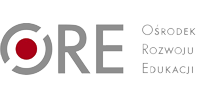- Higher Education
- Business
- Education
- Multimedia
- About Us
- Projects
Projects
The main objective of the Education Programme is to reduce economic and social disparities within the European Economic Area and to strengthen bilateral relations between Poland and Iceland, Liechtenstein and Norway in the field of education. The programme is intended to contribute to strengthening human potential and expanding the knowledge base in Poland.
The main objective of the project is to develop, between 01.01.2022 and 31.05.2023, additional vocational skills for 8 trade education professions (fishing industry and water transport industry), for which learning outcomes and criteria for verification of these outcomes will be defined, together with 17 curricula for their teaching in cooperation with employers and employers’ associations.
Project type
Współfinansowany w ramach programu Unii Europejskiej Europejski Fundusz Społeczny
Date
od 01.01.2022 do 31.05.2023
Project value
1 578 360,00 PLN
The main objective of the project is to develop, between 01.01.2022 and 31.05.2023, additional vocational skills in the field of 19 trade education professions (health care, social assistance and protection and security of persons and property industries.), for which learning outcomes and criteria for verification of these outcomes will be defined, along with 33 curricula for their teaching in cooperation with employers and employers’ associations. 
The aim of the project is to integrate technology into courses to engage students in learning experiences, whether they are learning in the classroom or remotely. The project explores the potential of virtual reality (VR) to deepen understanding and increase student engagement by eliminating the screen and placing students in real-world situations through the use of VR 360 video.
The main objective of the project is to activate women by showing them model solutions for preparing for remote working from 01.04.2021 to 30.06.2023. Through support in the form of e-learning trainings, webinars and the preparation of a tutorial for learning how to work remotely – a practical guide with a lecturer by partners from Poland, Cyprus, Romania and Turkey.

The overall objective of the project is to increase the use of modernised content, tools and resources to support the process of vocational education in the area of mining, drilling and metallurgy, based on multimedia e-didactic materials created between 01.01.2021 and 30.11.2023, made available on the nationwide, freely accessible portal epodreczniki.pl.
The aim of the project is to increase the use by schools and educational institutions of modernised content, tools and resources supporting the process of general education in the development of students’ key competences and universal skills, as well as experimental teaching and methods of individualised approach to students in the field of biology, nature, chemistry and geography, based on didactic e-materials created (217 new e-materials) and updated (542 e-materials) in the period from 01.01.2021 to 31.12.2023.
The overall objective of the project is to increase the use of modernised content, tools and resources by schools and educational institutions to support the general education process in terms of students’ development of key competences and universal skills, as well as experimental teaching and methods of individualised approach to students in the areas of physics, mathematics and computer science, based on teaching e-materials created (109 new e-materials) and updated (855 e-materials) between 01.01.2021 and 30.11.2023.
The main objective of the project is to increase the use of modernised content, tools and resources by schools and institutions to support the general education process in terms of students’ development of key competences and universal skills, as well as experiential learning and methods of individualised approaches to students in the area of English language learning, based on 937 modern, open-source teaching e-materials created between 01.01.2021 and 30.11.2023.
The main objective of the project is to increase the use by schools and institutions of modernised content, tools and resources to support the general education process in terms of students’ development of key competences and universal skills, as well as experimental teaching and methods of individualised approach to students in the area of learning French, based on 400 modern, open-source didactic e-materials created between 01.01.2021 and 30.11.2023.
The main objective of the project is to develop, between 01.03.2021 and 30.06.2023, 400 e-didactic materials in Spanish II (area V), including 120 for primary school grades VII-VIII and 280 for secondary school: high school/technical school, and to adapt them to the WCAG 2.1 standard.
The main objective of the project is to develop, between 01.01.2021 and 30.11.2023, 222 e-didactic materials in early childhood education (area VI) and update 502 existing e-didactic materials, including adaptation to the WCAG 2.1 standard.
The main objective of the project is to develop and disseminate 72 e-materials for vocational training between 01.01.2021 and 30.09.2023 in the field of professions (qualifications) representing the horticultural, agricultural and livestock and forestry industries, including adaptation to the WCAG 2.1 standard.
The main objective of the project is the development and dissemination of 34 e-materials for vocational training from 01.01.2021 to 30.09.2023 in the area of professions (qualifications) representing the trade and economic and administrative sector, including adaptation to the WCAG 2.1 standard.
The main objective of the project is to increase the use of modernised content, tools and resources by schools and institutions to support the general education process in terms of students’ development of key competences and universal skills, as well as experimental teaching and methods of individualised approaches to students in the area of German language learning, based on 937 modern, open-source teaching e-materials created between 01.01.2021 and 31.12.2023.
The aim of the project is to develop a model system of psychological support and professional development in this area for teachers in the period 01.12.2020 – 30.04.2023 by partners from Poland, Slovakia and Cyprus. The project is dedicated to primary and secondary school teachers.
The main objective of the project is to create, in the period from 01.12.2020 to 29.10.2022, 12 educational toolkits for foreign languages for the 3rd educational stage – Secondary School, Technical School, 1st and 2nd level vocational school, as well as to develop curricula for modern foreign languages: Italian, Spanish and Russian – Area VI.
The main objective of the project is to create, in the period from 01.10.2020 to 29.07.2022, 6 educational toolkits for foreign languages for the 2nd stage of education: English, German, French, Italian, Spanish and Russian, as well as to develop curricula for modern foreign languages: Italian, Spanish and Russian – Area V.

The main objective of the project is to create between 01.12.2020 and 28.02.2023, 9 educational toolkits for natural science subjects in biology for educational stage II, chemistry for educational stage II, PE for educational stage II, geography and nature for educational stage II, EDB for educational stages II and III (basic level), geography (basic level) and basics of entrepreneurship (extended level) for educational stage III, biology for educational stage III (basic and extended level), chemistry for educational stage III (basic and extended level) and PE for educational stage III (basic and extended level) – Area IV.

The main objective of the project is to create, between 01.11.2020 and 28.02.2023, 8 educational toolkits for mathematics subjects – Area III.
The main objective of the project is to create, between 01.11.2020 and 29.09.2022, 10 educational toolkits for humanities and arts subjects – Area II.
The main objective of the project is to create, between 01.10.2020 and 29.08.2022, 8 educational toolkits for pre-school and early childhood education with foreign languages: English, German, French, Italian, Spanish and Russian, as well as to develop curricula for modern foreign languages: Italian, Spanish and Russian – Area I.
The main objective of the project is to develop 3 innovative games for children adolescents with gamification and game-based-learning elements. The educational games will be made available free of charge to all interested schools for self-printing from a freely accessible website.
The main objective of the project is to implement organisational changes and raise the awareness and competence of university staff in the field of disability and to improve the quality of teaching for people with disabilities by 1 higher education institution, i.e. Powszechna Wyższa Szkoła Humanistyczna ‘Pomerania’, in the period up to 31.10.2023.
The main objective of the project is to increase adult access to various forms of lifelong learning through the development of 57 model curricula for qualifying vocational courses (kkz) and 220 curricula for vocational skills courses (kuz) between 01.01.2020 and 31.03.2022 with the active participation of representatives of the socio-economic environment.
The main objective of the project is to increase adult access to various forms of lifelong learning through the development of 54 model curricula for qualifying vocational courses (kkz) and 218 curricula for vocational skills courses (kuz) between 01.01.2020 and 31.03.2022. The development of e-didactic materials for Area II – German Language I with the active participation of representatives of the socio-economic environment.
 Priority axis 1: Strengthening of innovation and competitiveness of the region’s economy Sub-measure 1.5.3 Support for the process of internationalisation of enterprisesProject objective:OBJECTIVE 1 – Preparation of the product and the company for the internationalisation process OBJECTIVE 2 – Preparation of the company’s marketing for the internationalisation process OBJECTIVE 3 – Promotion of the company and products on new target marketsGrantee: Eduexpert Sp. z o.o.
Priority axis 1: Strengthening of innovation and competitiveness of the region’s economy Sub-measure 1.5.3 Support for the process of internationalisation of enterprisesProject objective:OBJECTIVE 1 – Preparation of the product and the company for the internationalisation process OBJECTIVE 2 – Preparation of the company’s marketing for the internationalisation process OBJECTIVE 3 – Promotion of the company and products on new target marketsGrantee: Eduexpert Sp. z o.o.

The project aims to produce results of a universal nature. The implementation of the project within the framework of international cooperation will make it possible to exploit the synergies of the diversity of each participating country in terms of raising competences in the safe use of the web and social media, using good practices in this field.
The pilot of the Sectoral Qualifications Framework for the Fashion Industry was aimed at verifying the real and potential benefits and barriers related to
the implementation process of the SRK PM in the sector. The information gathered during the pilot contributed to the development of recommendations regarding the possibility of future implementation of the sectoral framework in more companies and enterprises.Qualifications Framework for the Fashion Sector – final report QualificationsFramework fortheFashion Sector – final report (print version)

The project is implemented under Priority Axis: 1. Strengthening innovation and competitiveness of the region’s economy, under Measure: 1.5: Development and implementation of new business models for SMEs, Sub-measure 1.5.3 Support for the process of internationalisation of enterprises. The aim of the project is to prepare the Applicant to launch products on foreign markets.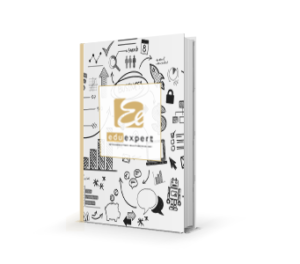

The project is implemented under Priority Axis: I. Strengthening innovation and competitiveness of the region’s economy, under Measure: 1.2 Promoting business investment in research and innovation, Sub-measure 1.2.1 Support for research and development processes. The main objective of the project is to develop, as a result of R&D work, a concept of innovative teaching tools for the implementation of experiments for schools, teachers and students.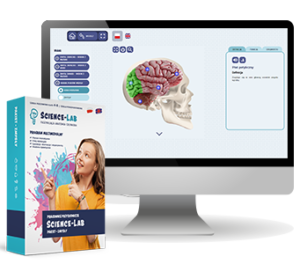


The project is implemented under Priority Axis: II. Effective public policies for the labour market, economy and education, under Measure: 2.10 High quality of the education system.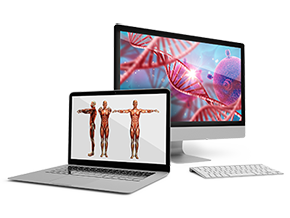

The project is implemented under Priority Axis: II. Effective public policies for the labour market, economy and education, under Measure: 2.10 High quality of the education system.

The project is implemented under Priority Axis: II. Effective public policies for the labour market, economy and education, under Measure: 2.10 High quality of the education system.

The project is implemented under Priority Axis: II. Effective public policies for the labour market, economy and education, under Measure: 2.10 High quality of the education system.

The project is implemented under Priority Axis: II. Effective public policies for the labour market, economy and education, under Measure: 2.10 High quality of the education system.

The project will be dedicated to improving language competences in VET through the implementation of the CLIL-VET model and its further evaluation. In addition, open educational resources (OER) will be extended in the training process of vocational school teachers and access to them will be promoted, thus supporting ICT-based teaching. The project primarily aims to support the promotion of quality language education in vocational schools. The aim is to promote the improvement of the quality of vocational education and training by introducing elements of integrated subject and language education into vocational schools.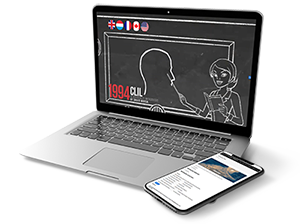

The project is implemented under Priority Axis: II. Effective public policies for the labour market, economy and education, under Measure: 2.10 High quality of the education system.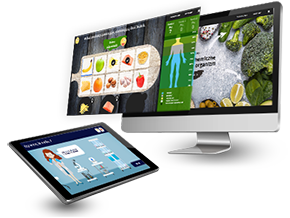

The project is implemented under Priority Axis: II. Effective public policies for the labour market, economy and education, under Measure: 2.15 Vocational education and training adapted to the needs of a changing economy. The aim of the project is to develop 30 multimedia materials (e-resources) in the period from 01.02.2017 to 31.10.2018 in the area of administration and services(II) in two groups of professions: economic-administrative-office and transport-freight forwarding-logistics.
Within the framework of 30 e-resources, 13 e-resources will be developed in English and 17 e-resources for 5 professions in other foreign languages, including for 4 professions (port and terminal operations technician, airport operations technician, maritime navigation technician, marine fisheries technician) in German, Russian, French and Spanish and for 1 profession (inland navigation technician) in German.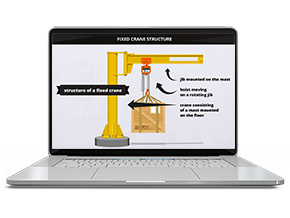

The project is implemented under Priority Axis: II. Effective public policies for the labour market, economy and education, under Measure: 2.15 Vocational education and training adapted to the needs of a changing economy.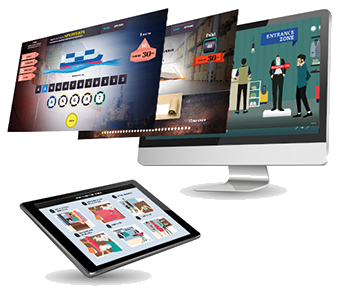

The project is implemented under Priority Axis: II. Effective public policies for the labour market, economy and education, under Measure: 2.15 Vocational education and training adapted to the needs of a changing economy.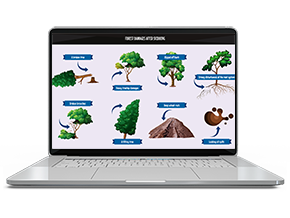

“Mathematics with no remainder – first steps” is a multimedia educational product for pre-school establishments, designed to introduce mathematics and science topics in pre-school education. It contains a package of exercises, interactions, games and videos for quick and effective use during play in a preschool group. The whole unit is aligned to the core curriculum and allows working with children with special educational needs.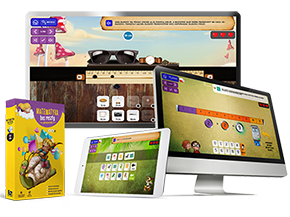
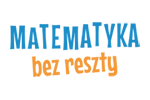 Technology Partner:
Technology Partner: 
“The project method in pre-school education” is a multimedia programme fully adapted to work with children in a pre-school institution – including work with an interactive whiteboard. Through a variety of exercises and interactions, as well as a rich didactic framework, it allows to freely introduce educational issues in an interesting and modern way. The design of the multimedia programme and the teaching environment take into account the work with children with special educational needs. The instructions are read by a lector and the graphics are attractive and subdued, thanks to which solving tasks on the interactive whiteboard is effective and interesting for the whole class. Some of the tasks are prepared in English, thanks to which students practise vocabulary and pronunciation.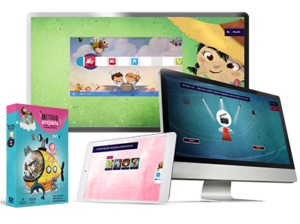
 Technology partner:
Technology partner: 
The project aims to produce results of a universal nature. Schoolchildren need knowledge which will prepare young people to develop awareness of multiculturalism in the face of the changes taking place in the modern world, which will help young people develop the skills to live in a multicultural society, assimilate and overcome barriers and prejudices in choosing their educational or professional path. The involvement of international partners from the UK and Slovakia will enable the development of products that will be useful to audiences regardless of where they live, which is of great importance in today’s educational and professional mobility.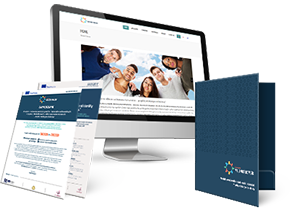

Schoolchildren need knowledge that will allow them to make the right decisions about further education, prepare young people to develop key competences, recognise their own needs, skills and the opportunities provided by the modern education system, and help them develop the ability to recognise personal resources and use them in building their own educational and professional paths. The involvement of international partners from the UK and Italy will enable the development of products that will be useful to recipients regardless of where they live, which is of great importance in today’s educational and professional mobility.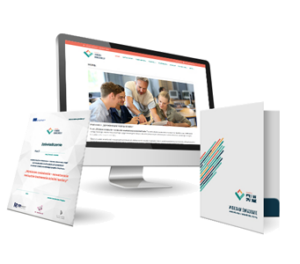

The project involves the development of an electronic Polish-Ukrainian publication in the form of an interactive game developed by young people from both countries on the theme of combining the history, tradition and culture of Poland and Ukraine. Through the use of various work methods, i.e. games, integration workshops, language animation, simulation games, young people will discover their common history, roots, learn to build common relations, which will become the basis for creating an electronic publication. While preparing materials for the electronic publication, young people will activate themselves and plan activities to generate interesting initiatives for their surroundings. Working and playing in international teams at the same time, they will stimulate their own ingenuity and creativity, resulting in an electronic publication about their common roots, history and the building of contemporary relations.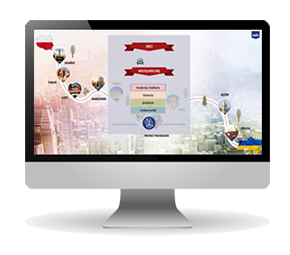



After many months of preparation and production process, we present to you the latest multimedia products from our publishing house: ‘Mathematics with no remainder’ and ‘Project method in early childhood education’. Mathematics with no remainder’ is a three-part multimedia educational product designed to teach mathematics and science subjects in early childhood education. It contains a package of exercises, interactions, games and videos for quick and effective use during school activities. The programme has three parts, corresponding in theme to grades 1-3 – the whole programme is aligned to the core curriculum and allows working with students with special educational needs.
‘The project method in early childhood education’ is a multimedia programme containing a description and methodological basis for 12 projects for grades I-III, divided into 4 topics in each part. Through a variety of exercises and interactions, as well as a rich didactic framework, it allows for free implementation of the core curriculum. The programme is intuitive to use. All elements are designed to make the teacher’s job easier. The active elements in the games are always at a height that is accessible to the child – no teacher assistance is required. Graphics and interactions represent real images – unrealistic animations are kept to a minimum. Task commands are text and audio.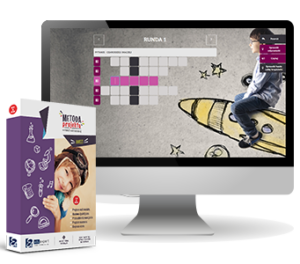

At the end of December 2015, we completed a project in which we carried out trainings ‘Safety Strategy for Students’, as part of the government programme ‘Safe School’ in Wielkopolskie Voivodeship. We conducted 89 hours of training in 3 junior high schools on prevention of student aggression, prevention of cyberbullying, aggressive behaviour, crisis situations and mechanisms of addiction in relation to social norms and values.
In 2015, we produced 343 resources for the multimedia Regional Knowledge Portal on the Kujawsko-Pomorskie Educational Platform. The aim of the project was to provide regional educational content for teachers and students of all 670 primary schools in the Kujawsko-Pomorskie Voivodeship. Our multimedia resources were prepared by a team of educators, teachers and didacticians for the primary school level and play an informative and educational role. As part of this task, our company has prepared 343 complete educational resources for the above-mentioned institutions, including: films, animations, interactive games, factual materials, slideshows, games.
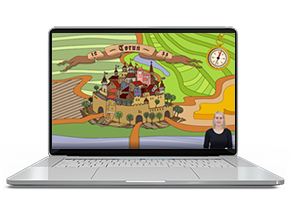




In 2015, we became co-authors of the Sectoral Qualifications Framework for the IT industry developed on behalf of the Educational Research Institute. Based on it, the first 5 frameworks were developed: banking IT, telecommunications, sport and tourism. ‘Sectoral Qualification Framework’ contains a description of skills, knowledge and competences, important for employees in the industries, linked to the Polish Qualification Framework.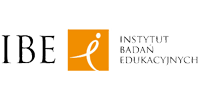
In 2014 and in 2015, as part of the EU-funded projects ‘Direct support for school development through the implementation of a modernised teacher training system – Gniezno County’, a group of our specialists and experts trained a total of 1,300 teachers from 64 kindergartens, primary schools, middle schools, technical schools and high schools, e.g. on working with students with special educational needs, new learning techniques and increasing students’ motivation to learn.